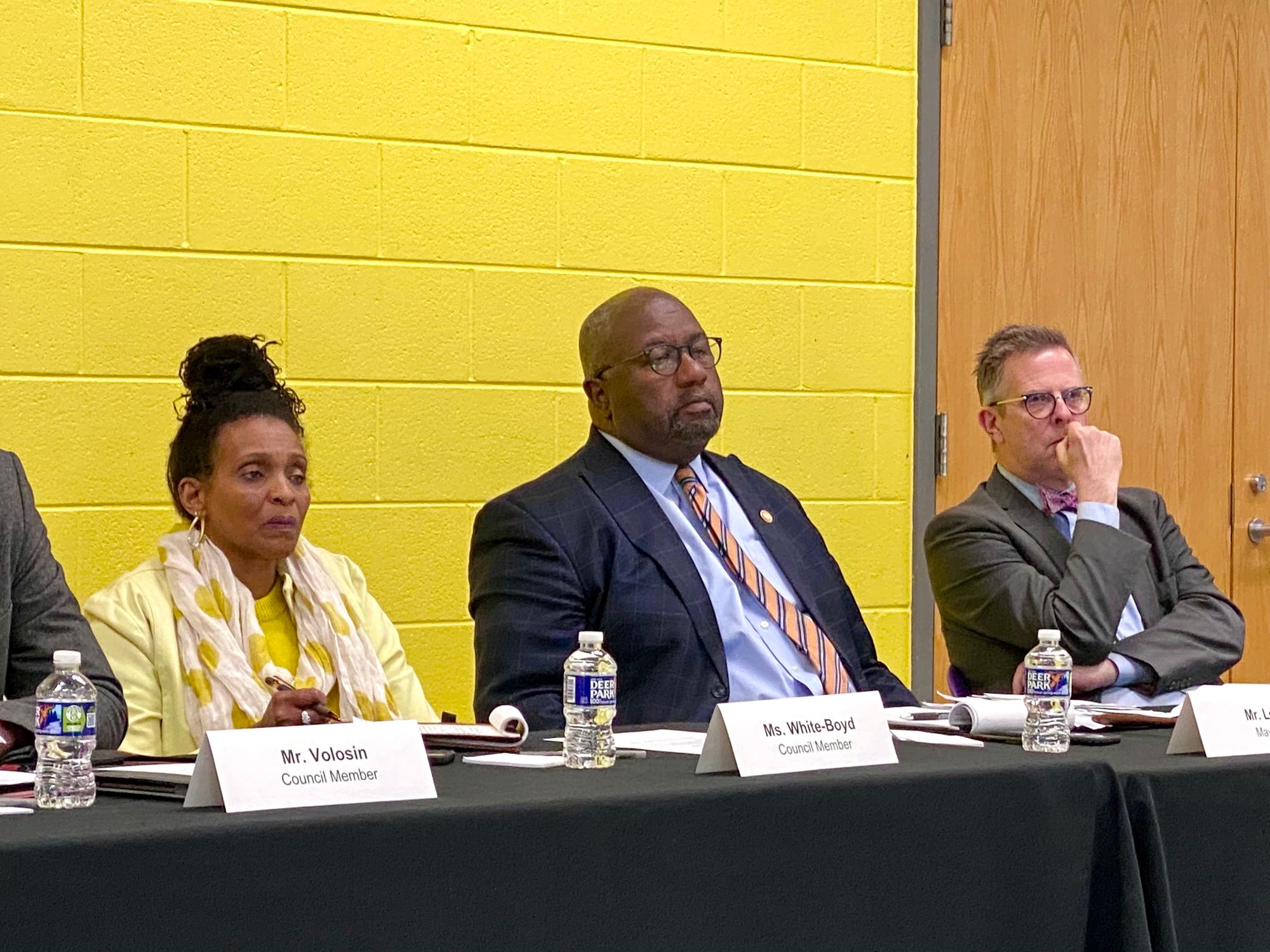Ramblings: Roanoke Youth Curfew Talk Hits Snag; Gun Violence Panel Tweaks Tabled; Black History Project Launches
What are Ramblings? Ramblings are a collection of short items that have caught our attention for one reason or another.
What are Ramblings? Ramblings are a collection of short items that have caught our attention for one reason or another. We’re on the lookout for tidbits related to money in politics, data, business, civic engagement or interesting events. Think you know of something that could be a Rambling? Drop us a line at editor@roanokerambler.com and we may well write about it. Happy reading!

Enforcing, not expanding, youth curfew
Roanoke Mayor Sherman Lea, who for months advocated for a stricter youth curfew, said Monday he didn’t realize the city already has a curfew law on the books.
The city held two public hearings in March, ostensibly “to hear the views of citizens with regard to options for enforcing curfew and additional ways to protect youth in the community.” By a wide margin, residents said they would not like a curfew enforced.
City Council revisited the issue on Monday. But Lea appeared befuddled after being corrected by city officials and members of Council when he said the city didn’t have a curfew in place.
“So what we’ve been talking about, then, going across this community, because people – I guess I’m not the only one that didn’t know we had a curfew,” Lea said. “From the standpoint of young people under the age of 16 … there’s a curfew in the city, that they can’t be out after a certain time at night?”
“Yes, there is an existing curfew,” Police Chief Sam Roman told the mayor. “I guess I was under the assumption that this process was to expand those hours.”
City code says anyone under 17 cannot loiter, wander or play in any public place without supervision between 11 p.m. and midnight Sunday through Thursday and from midnight to 5 a.m. any day of the week.
The law does not apply to youth who are at or going to work or have permission from their guardian to go on an emergency errand.
Lea had earlier indicated the city could enforce a curfew from 10 p.m. until 6 a.m.
Only a handful of kids have been charged with a curfew violation over the last few years, according to police data. Officials said those coincided with other alleged crimes.
“We don’t make a routine of just going out and rounding up kids,” Roman said, noting officers need reasonable suspicion to stop youth. Police are careful to avoid bringing young people into the criminal justice system and may refer them to services when appropriate, he said.
“It doesn’t sound like we’re actively enforcing it,” Councilwoman Trish White-Boyd said of the curfew, asking Roman how the city can keep kids safe. “I’m looking for your advice because we're at a loss now.”
“My advice would be to continue the course,” the chief said. “I don’t think that we should just run in and begin to charge our juveniles with curfew [violations] because, theoretically, 90 percent of the juveniles we come across are out for a legitimate reason.”
City Manager Bob Cowell said it seemed Council had less interest in expanding the current curfew than in seeing what could be done to enforce it. He said staff will work on the issue for a briefing next month on other ways the city is steering youth away from gun violence.
Council walks back gun panel changes
Proposed changes to Roanoke’s Gun Violence Prevention Commission hit another snag this week as City Council tussled over the commission’s powers.
Council was expected on Monday to adopt a new policy — hashed out two weeks ago between both bodies — clarifying the commission’s grant-making authority. The draft code change states the commission would recommend to Council how violence reduction grant funds should be dispersed. Council would have additional oversight over those recommendations.
Though previously compared to how other city advisory boards, like the arts commission, work, the change would actually be more stringent, City Attorney Tim Spencer said.
But Councilwoman Stephanie Moon Reynolds, a frequent critic of the commission, said she still has concerns with the oversight and monitoring of grants that the panel considers.
“They’ve never disbursed funds,” Spencer told Moon Reynolds. “Please understand and be clear that the City of Roanoke is the one that spent the money, not the gun violence commission. … I want both our residents to be aware of that, and the press, because I think that’s been a misthought, that they were spending money.”
Moon Reynolds said the perception in the community is that grant funds are available and they should see Vice Mayor Joe Cobb, who chairs the commission, to help them get money.
“That’s completely inaccurate,” Cobb said, later adding, “You’re holding the commission to a different standard than you are other commissions and boards in the city, and I do have issue with that.”
Council members debated whether all city advisory boards should then be subject to such scrutiny — meaning Council would have to approve every funding recommendation the boards make to city leadership.
City Manager Bob Cowell said such a change would be burdensome, increasing delays and introducing politics into how grant funds are awarded.
Council voted 5-2 to table adopting the new policy, with Cobb and Councilman Luke Priddy in the minority.
Spencer said he would work with Cowell and city staff to come up with a new proposal after the completion of an internal audit into the commission, which is expected as early as next month.
Sites of Roanoke's Black history highlighted
A digital project highlighting important sites of Black history in Roanoke launches Sunday.
Hidden in Plain Site Roanoke will be screened at the Dumas Center (108 Henry St. NW) after a reception at the Claude Moore Education Complex (108 N. Jefferson St.) Registration is required for the free event, which begins at 5:30 p.m.
The online and virtual reality project will take viewers through the history of the Berglund Center, Old Lick cemetery, Washington Park, Burrell Memorial Hospital, Henry Street and the former home of Henrietta Lacks. Urban renewal — a policy that destroyed many Black homes, businesses and churches beginning in the 1950s — affected most of the chosen sites in Northwest and Northeast Roanoke.
The history project was part of a larger fundraiser to erect a statue of Lacks downtown.
Councilwoman Trish White-Boyd and The Harrison Museum of African American Culture spearheaded the initiative, which raised nearly $184,000 for both projects.

